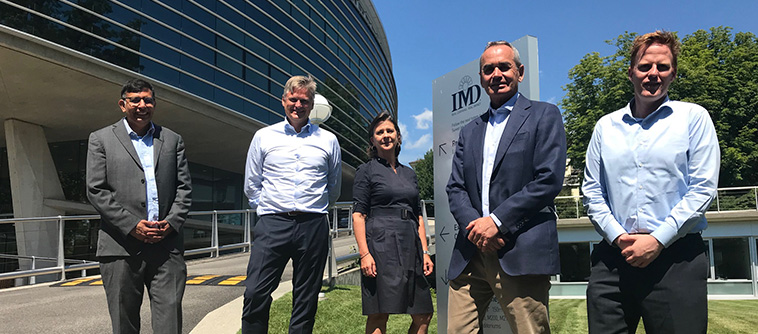
At the intersection of the economy, environment and society, sustainability is a crucial issue for all industries and all sectors, says Professor Knut Haanaes, and not one will emerge from the COVID-19 crisis without taking it into consideration.
By promoting shared values, organizations become part of the solution rather than part of the problem. Whether that is through employing digital solutions or piquing the interest of investors and shareholders with a responsible business approach, integrating sustainability into the business agenda is the primary goal.
“Increasingly, investors take sustainability into account; consider the rise in Environmental, Social and Governance (ESG) reporting,” said Professor Haanaes. “Customers, too, are rapidly getting into the game.”
As vocal proponents of responsible business, IMD and the Lundin family – represented by the Adolf H. Lundin Charitable Foundation – have announced the appointment of Professor Haanaes to the Lundin Sustainability Chair. The renewal of the Lundin family’s multi-million CHF endowment marks a shared dedication to “smart sustainability” – and the recognition that this is an integral part business strategy.
“The Lundin family and group of companies have a long-standing commitment to responsible business,” said a spokesperson for the Lundin family. “We look forward to further our knowledge of sustainability and share it with like-minded business and civil society actors.”
Innovative approaches to sustainability
IMD is working toward shattering industry silos by integrating digital and environmental agendas. By making use of new tools like AI and advanced analytics, sustainability can be furthered by developing logical, data-driven solutions.
With data as the great equalizer – powering projects from ‘smart cities’ to fully digitalized renewable energy systems – it can speed the decoupling of economic growth and environmental degradation, insist IMD and the Lundin family.
There are myriad possibilities for implementing AI in the natural resources sector. As environmental and energy systems are very complex, AI is a clear tool for processing all available data sources in an equal and transparent fashion. The result would be increased efficiency – reductions in waste, cost and in many cases, improved outcomes.
Partnership for progress
This partnership aims to ensure sustainability is enshrined in business practices; companies are already finding that focusing on profit only is no longer acceptable. Smart sustainability must be at the heart of every organization.
“The Lundin Chair is leading in the next frontier of sustainability, in which companies create shared value and tackle global challenges – especially addressing climate change – by using natural resources in much smarter and more efficient ways,” said Professor Haanaes.
First created in 2004, the Chair spearheads research and teaching related to the natural resources sector and investigates how challenges and opportunities in this area impact other industries and society as a whole.
The initiative is one of many that IMD is developing as the institution makes strides toward putting sustainability at the forefront of its agenda.


